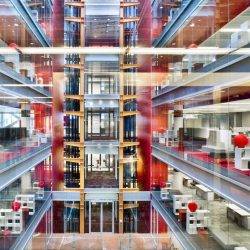June 21, 2017
Report sets out costliest cities for mobile workforce of multinationals 0
 In a rapidly changing world, mobility has become a core component of companies’ global talent strategy and as a result, multinational organisations are carefully assessing the cost of packages for their international mobile workforce, claims a new report which sets out the costs of living in the world’s major cities. Mercer’s 23rd annual Cost of Living Survey finds that factors like instability of housing markets and inflation for goods and services contribute to the overall cost of doing business in today’s global environment. Mercer’s 2017 Cost of Living Survey finds Asian and European cities – particularly Hong Kong (2), Tokyo (3), Zurich (4), and Singapore (5) – top the list of most expensive cities for expatriates. The costliest city, driven by cost of goods and security, is Luanda (1), the capital of Angola. Other cities appearing in the top 10 of Mercer’s costliest cities for expatriates are Seoul (6), Geneva (7), Shanghai (8), New York City (9), and Bern (10). The world’s least expensive cities for expatriates, according to Mercer’s survey, are Tunis (209), Bishkek (208), and Skopje (206).
In a rapidly changing world, mobility has become a core component of companies’ global talent strategy and as a result, multinational organisations are carefully assessing the cost of packages for their international mobile workforce, claims a new report which sets out the costs of living in the world’s major cities. Mercer’s 23rd annual Cost of Living Survey finds that factors like instability of housing markets and inflation for goods and services contribute to the overall cost of doing business in today’s global environment. Mercer’s 2017 Cost of Living Survey finds Asian and European cities – particularly Hong Kong (2), Tokyo (3), Zurich (4), and Singapore (5) – top the list of most expensive cities for expatriates. The costliest city, driven by cost of goods and security, is Luanda (1), the capital of Angola. Other cities appearing in the top 10 of Mercer’s costliest cities for expatriates are Seoul (6), Geneva (7), Shanghai (8), New York City (9), and Bern (10). The world’s least expensive cities for expatriates, according to Mercer’s survey, are Tunis (209), Bishkek (208), and Skopje (206).




















 A majority of employees (62 percent) believe their company culture is one of the biggest hurdles in the journey to becoming a digital organisation, and this is putting companies at risk in falling behind competition in today’s digital environment claims a new report.
A majority of employees (62 percent) believe their company culture is one of the biggest hurdles in the journey to becoming a digital organisation, and this is putting companies at risk in falling behind competition in today’s digital environment claims a new report. 














June 14, 2017
Workplace wellbeing is now embedded in the very bricks and mortar of the building 0
by Sion Davies • Comment, Wellbeing, Workplace design
(more…)